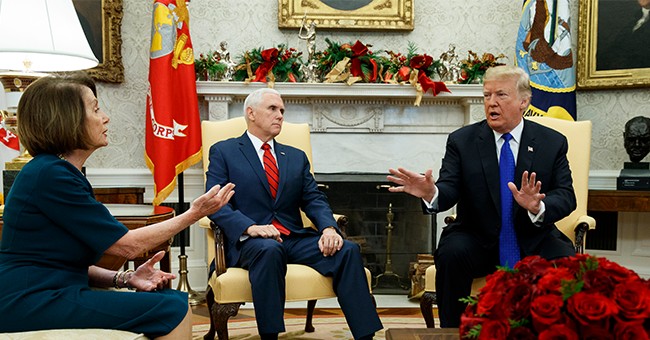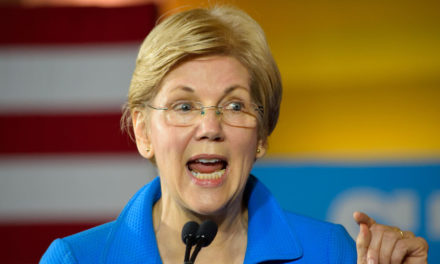Warren’s wealth tax proposal reflects the Democratic Party’s leftward drift on economic policy and tax issues. Democratic politicians have traditionally shied away from proposing how they would raise revenue, for fear of being branded “tax and spend” liberals, said Jim Manley, who served as an aide to former Senate Majority Leader Harry M. Reid (D-Nev.).
Saez and Zucman
earlier this week published an op-ed in the New York Times about Rep. Alexandria Ocasio-Cortez’s (D-N.Y.) proposal to raise marginal tax rates to 70 percent on income above $10 million, a plan the economists said would help combat an “inequality crisis” akin to climate change.
“It’s a pretty dramatic change that shows how much the party has evolved,” Manley said. “It’s not where everyone in the party is now, but it’s an awful lot of people.”
Republicans are likely to seize on the plan as another example of Democrats looking to tax Americans’ hard-earned gains, even though it would apply to only a tiny percentage of the population. In their major tax overhaul passed December 2017, Republicans significantly hiked the threshold for the federal estate tax – exempting estates with assets of $11.4 million (in 2019) or less from paying it. They have often referred to this provision, which affects several families a year, as the “death tax.”
Saez said the proposal came together quickly over the course of the last two weeks, while adding the economists have spent years considering how to enact a wealth tax.
Saez and Zucman initially evaluated a proposal at Warren’s request to levy a 1 percent wealth tax on income above $10 million, rather than a 2 percent wealth tax above $20 million, according to a Jan. 14 letter the economists sent to Warren. That letter was obtained by The Washington Post.
According to people familiar with the matter, Warren’s team has considered multiple different proposals with various rates.
By 2017, that number had fallen to just four: France, Norway, Spain and Switzerland. That decline has been mirrored by a decline in the taxation of high incomes, as well as a rise in inequality, according to the OECD.
The OECD report concludes that the merits of a wealth tax depend in part on how a country taxes capital gains — the income accrued from capital — and estates. Overall, it recommends that “tax exemption thresholds should be high to ensure that the net wealth tax is only levied on the very wealthy,” and that “tax rates should be low and take into account tax rates on capital income to avoid imposing excessively high tax burdens on capital so as to prevent capital flight.”
Estimates of how much money can be raised by taxing the very rich vary dramatically. The Institute on Taxation and Economic Policy, a left-leaning think tank, published a report on Wednesday finding that a 1 percent wealth tax on the wealthiest 0.1 percent of
Americans would raise $1.3 trillion over a decade. That would affect U.S. households with wealth above $32.2 million.
But conservatives have warned that high taxes on the very rich will stifle growth, lead to capital flight, and produce relatively minor revenue gains. Earlier this month, the right-leaning Tax Foundation
found that Ocasio-Cortez’s plan for a 70 percent tax rate would either only raise $189 billion in revenue over 10 years, or lose the federal government $63.5 billion.
The Tax Foundation
has also warned against wealth taxes, arguing that “capital accumulation is an essential ingredient for economic growth,” that wealth inequality does not harm the economy, and that wealth rewards entrepreneurs who take risks.
Since
announcing her presidential bid, Warren has pitched herself a champion of the working class against elites, arguing “billionaires and big corporations” have rigged the political and economic system to their advantage. The possibility of a wealth tax proposal comes on top of her plan to force corporations to have 40 percent of their board of directors selected by company employees, as well as her support for Sen. Bernie Sanders’ (I-Vt.) plan to provide “Medicare-for-all” by nationalizing the health insurance industry.
The wealthiest 1 percent of families currently face a total tax burden, including state and local taxes, of about 3.2 percent relative to wealth, Saez and Zucman write in their letter.
The bottom 99 percent of families currently has a tax burden of 7.2 percent relative to their wealth, the economists say.
“One of the key motivations for introducing a progressive wealth tax is to curb the growing concentration of wealth,” Saez and Zucman wrote to Warren in their Jan. 14 letter. “The top 1 percent wealth share has increased dramatically from about 22 percent in the late 1970s to around 40 percent in recent years. Conversely, the wealth share of the bottom 95 percent of families has declined from about 50 percent in the late 1970s to about 40 percent today.”











